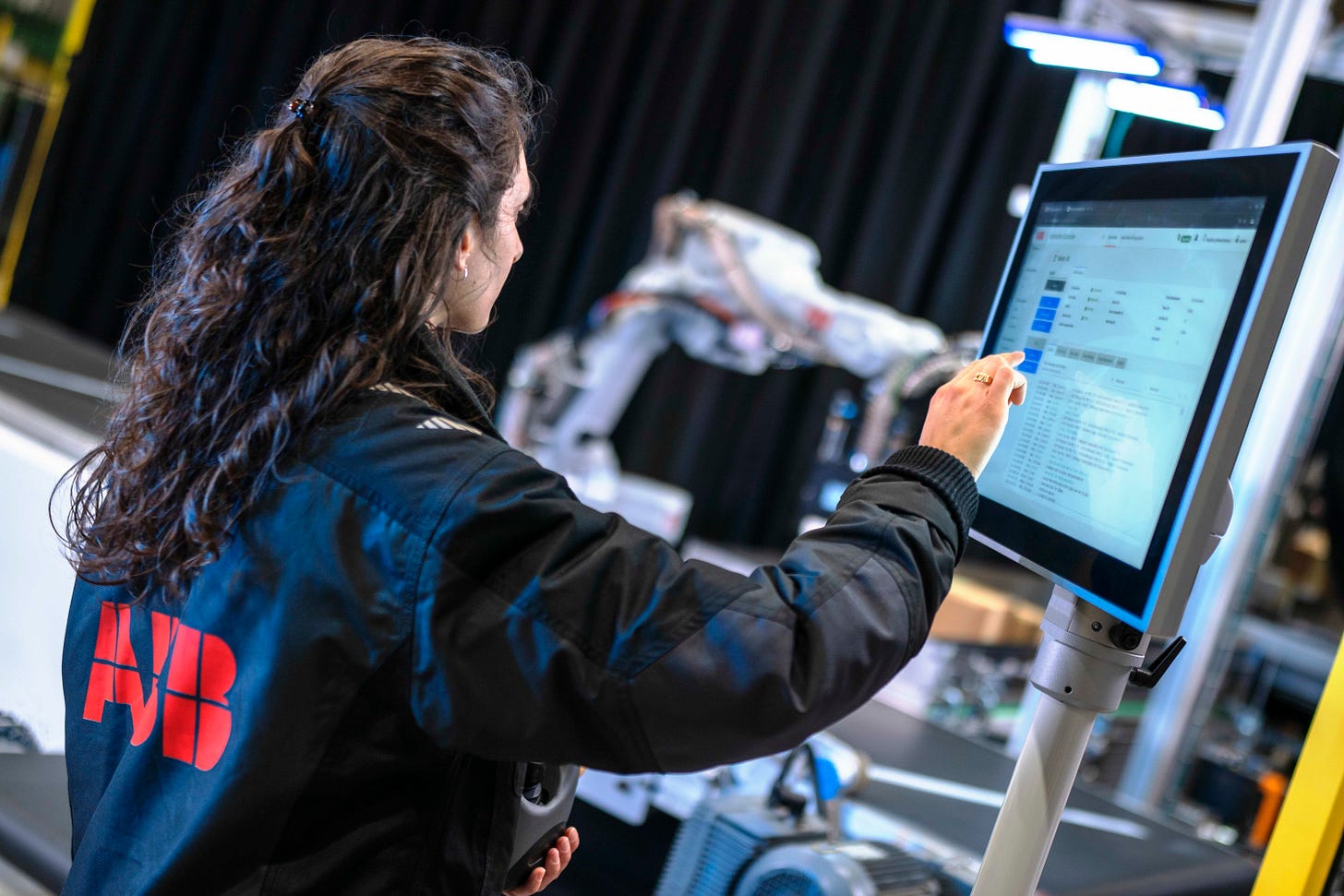ABB invests in LandingAI to speed robot vision deployment by 80%
Daily brief on news from the world autonomous mobile robots.

Swiss automation giant ABB Ltd. has invested in California-based LandingAI to integrate artificial intelligence vision capabilities that can reduce robot training and deployment time by as much as 80 percent, as the company pushes deeper into autonomous robotics beyond traditional manufacturing, the company said in a press release.
The strategic investment through ABB Robotics Ventures will embed LandingAI's LandingLens platform into ABB's robotics software suite, enabling faster commissioning cycles in dynamic environments including logistics, healthcare and food processing. Financial terms weren't disclosed.
"The demand for AI in robotics is driven by the need for greater flexibility, faster commissioning cycles and a shortage of the specialist skills needed to program and operate robots," said Sami Atiya, president of ABB Robotics & Discrete Automation. "Installation and deployment time is done in hours instead of weeks, allowing more businesses to automate smarter, faster and more efficiently."
The partnership marks another milestone in ABB's decade-long push toward what it calls Autonomous Versatile Robotics, expanding robot use cases beyond traditional automotive and electronics manufacturing into sectors requiring more adaptable automation.
No-Code AI Training
LandingAI's platform enables rapid training of vision AI systems without complex programming or specialized AI expertise. The technology, founded by former Google Brain co-founder and Baidu chief scientist Andrew Ng, uses pre-trained models and smart data workflows to accelerate deployment.
"By combining LandingAI's vision AI capabilities with ABB's robots and software, we can make automation more accessible," said Dan Maloney, chief executive officer of LandingAI. "This makes it easier for businesses to deploy and scale intelligent robotic systems."
ABB is already piloting the technology in applications including item-picking, sorting, depalletizing and quality inspection. The integration will be available alongside ABB's RobotStudio programming tool, which features digital twin capabilities.
Market Positioning
The collaboration positions ABB as the only major robotics manufacturer offering fully integrated AI training tools within its software suite, as the company competes with rivals including Germany's Kuka AG and Japan's Fanuc Corp for leadership in next-generation automation.
ABB's robotics and discrete automation division employs approximately 11,000 people across more than 100 locations in 53 countries. The broader ABB Group, with 110,000 employees globally, has invested around $500 million through its venture capital arm since 2009.
The investment comes as manufacturers face growing pressure to automate operations amid persistent labor shortages and the need for more flexible production systems that can adapt quickly to changing market demands.
